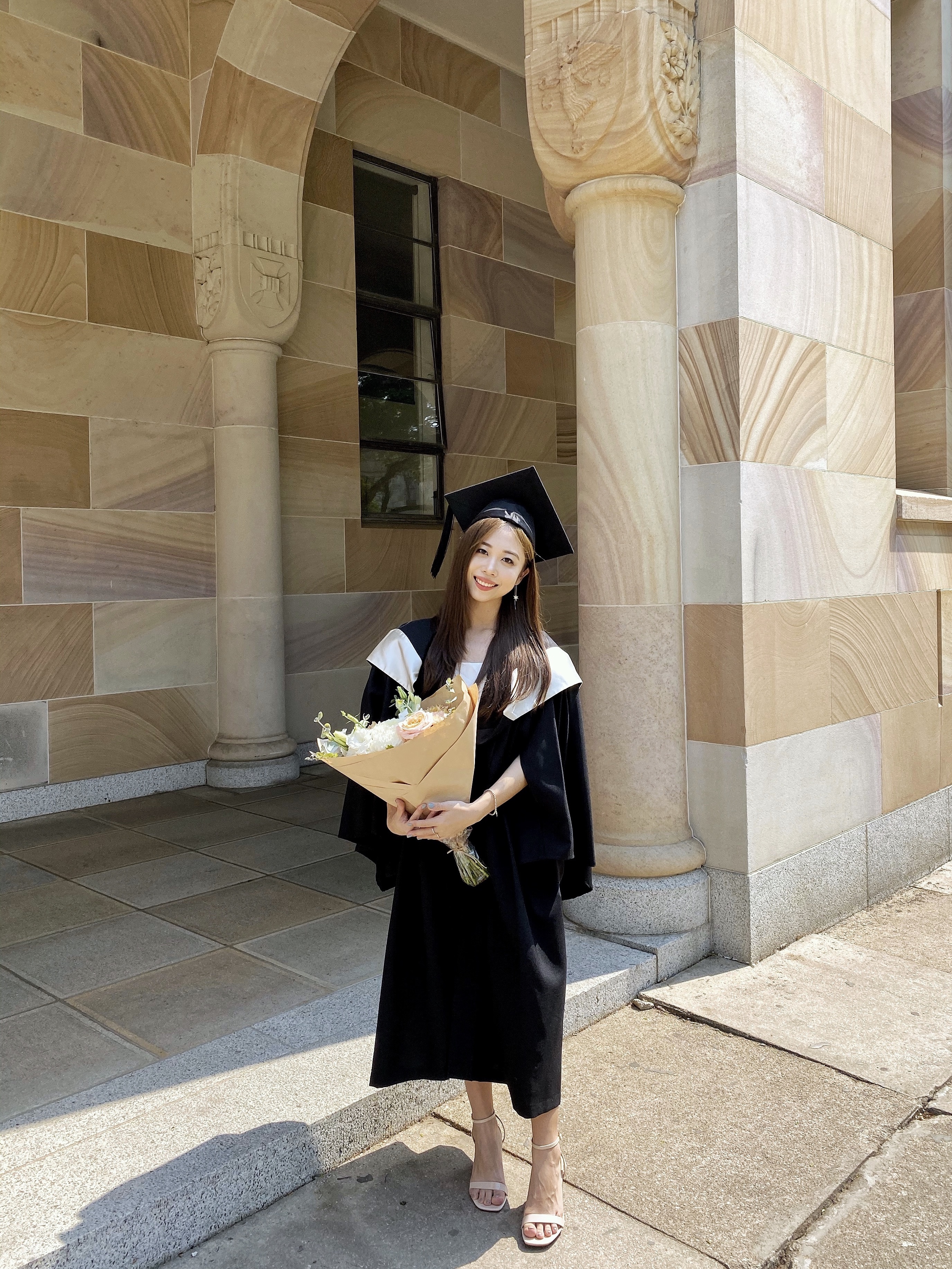What can you do with an Honours degree from the Faculty of Humanities and Social Sciences?
Our graduates end up all over the globe undertaking PhD's, working for governments, the private sector, non-for-profits, galleries, they go on to do teaching, researching, being project managers and undertaking many other roles! Having your Honours gives you a step up from the competition and opens you up to a world of opportunities.
Check out some of our graduates and be inspired to undertake 'One year. One extraordinary research experience'.
16. Se Youn Park BA (Hons) in International Relations
 What was the best thing about your program at UQ?
What was the best thing about your program at UQ?
The best part about completing my Honours degree at UQ was that I was able design and undertake a relatively large scale, independent research project of my own. Although I had previously been exposed to a variety of topics throughout the course of my extended major in International Relations, the restraints of coursework and set learning objectives meant that I had no real room to truly create something of my own. Honours definitely facilitated that for me. I was able to deal with a topic that is so important yet neglected due to its controversiality, and it is this academic freedom that really kept me motivated throughout my Honours year. As weird as it sounds, you end up growing a personal connection with your research topic... and perhaps because of this, nothing quite beats the satisfaction of submitting your very own thesis!
Honours is not about only doing hard work, though. Another thing I loved about my Honours degree is the much smaller cohort size, which allows you to develop deeper friendships and connections with your peers. Misery indeed loves company, and the friendships you develop will (in many cases) continue to flourish even past the completion of your Honours!
Any tips for Honours students?
Make sure you know exactly what you are doing before you go ahead and write. Planning your work effectively can save you from hours of editing in the end! I spent perhaps too long planning, but I'm glad that I did because very few changes had to be made at the end.
Oftentimes you'll feel behind, and you may start to panic knowing that everyone's ahead of you. Although your peers will form a great support system for you, there is absolutely no good in comparing your progress to theirs. Everyone works at different paces, and it's okay to go by your own. Also, it's most likely the case that everyone is pretending to be so much more put together than they really are, because they too are stressed! Try to relax and have some fun while you're at it. It is not a common opportunity to be able to have full creative and analytical control over your work.
Lastly, everything passes... and relatively quickly too. You'll eventually pull through, so please don't stress! You are more than capable of overcoming your challenges, and your supervisor will always have your back as well. You've got this!
How did your study help you to get to your current role, and what does your current role involve?
During my Honours year, I not only developed valuable friendships amongst my peers, but also grew very close to some of the academic staff members at my School. As a result, I am currently working as a Research Assistant to an academic staff member in the School of Political Science and International Studies. As self-explanatory as it sounds, the research, writing, and organisation skills I learnt during my Honours year has definitely helped me to work efficiently as a Research Assistant. More notably, my Honours thesis was so captivating that I have decided to extend my research into a PhD project here at UQ. Although not all Honours graduates move onto a PhD program, Honours equips you well enough for a natural transition into a PhD. I imagine the time-management skills and the expertise knowledge I am slowly developing in my research area will be helpful throughout my PhD degree too.
What advice would you give to students in the same discipline you studied?
Doing an Honours degree in POLSIS is interesting. You meet a range of students with completely different ideas and research topics, which means that you can definitely ask each other for a fresher outlook on your own project as well. Don't keep your research to yourself - actively seek for advice from your peers, as a simple "what would you do here" can often shift your perspective on an idea completely! Create a close network amongst your cohort, and work together to achieve the best results. Don'y be shy to ask for advice and learn from each other. There is absolutely no competition in Honours, and all of you can do equally as well! Cultivating close friendships, and maybe even crying together in the process, will develop a kind of comradery that is indescribable unless you have experienced it yourself. Enjoy it because you will come to miss it!
Seek advice not only from your peers, but also from your supervisor and the numerous academic staff at your School. I worked very closely with my supervisor, but I also had many meetings with other researchers to ensure that I was grappling with the right kinds of topics. Don't feel intimidated to send an email introducing yourself and your research. What you'll find is that staff members are more than happy to guide you through the process! They too were once research students that just wanted some extra help!
